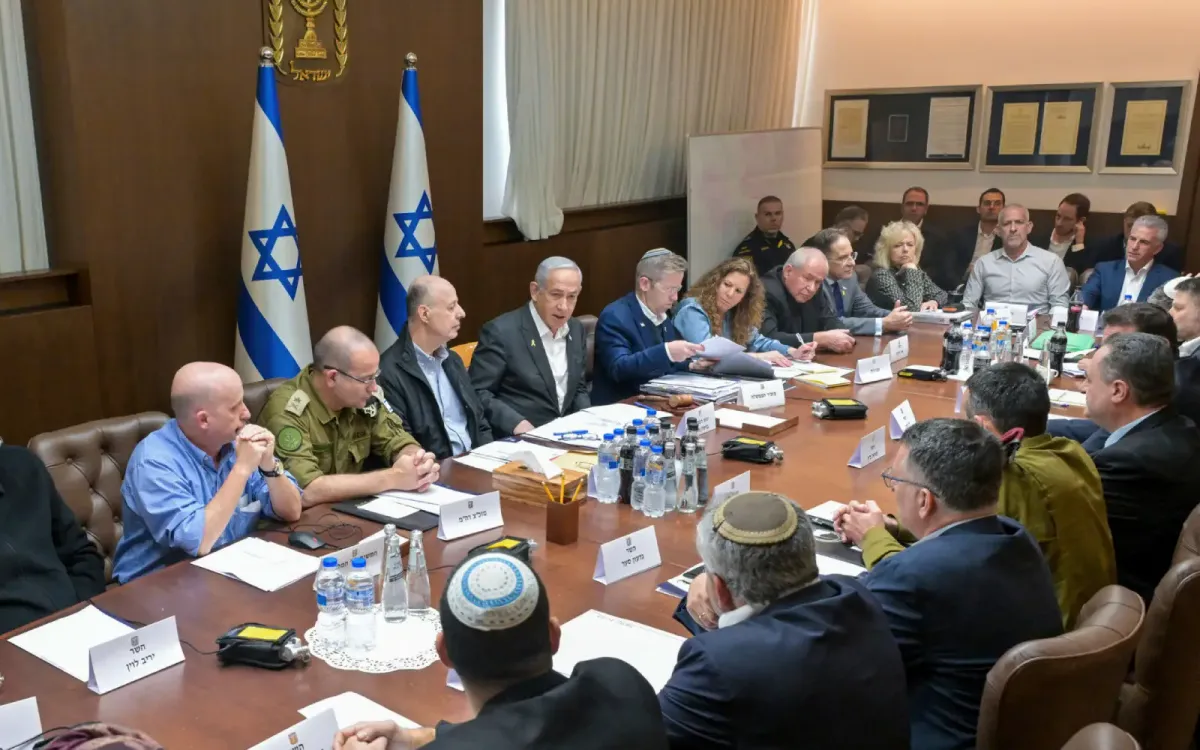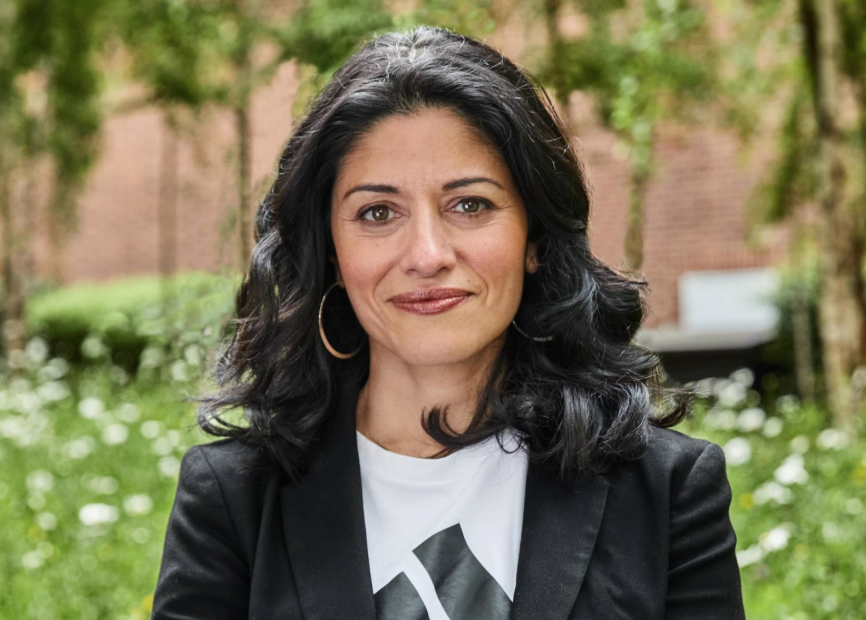Amherst Community Reflects on Israel-Hamas Ceasefire
Over the past few weeks, the multi-phase ceasefire deal agreed to by Israel and Hamas has seemed to unravel. Managing Features Editor Lauren Siegel ’27 spoke to Amherst community members about the agreement, highlighting their perspectives on the deal’s implications for the Amherst campus.

On Jan. 15, 2025, Israel and Hamas agreed to a multi-phase ceasefire and hostage-prisoner exchange deal, with the stated intention of ending the war in Gaza. Taking effect on Jan. 19, this agreement resulted from months of tense negotiations and followed over a year of unbridled death and destruction in the region. However, on Monday, Feb. 10, Hamas postponed an upcoming hostage release “until further notice,” accusing Israel of violating the terms of the ceasefire deal. The next day, Israeli Prime Minister Benjamin Netanyahu warned Hamas that if hostages were not released by noon on Saturday, the ceasefire would end, and Israeli troops would resume “intense fighting.”
Amid immense uncertainty and concerns over the feasibility of peace, Amherst community members have reflected on what this fragile deal means for the people of Gaza as well as our own campus community.
The Ceasefire Deal
While the ceasefire deal succeeded in initially securing the exchange of various prisoners and hostages, many Amherst community members nonetheless anticipated this deal’s fragility from the outset.
“I was kind of cynical,” said Ruth Zuraw ’25, reflecting on her initial reaction to the deal. “It feels like every six weeks or something there’s hope again and then something falls apart.”
“This whole agreement seems very unstable,” echoed one student, who chose to remain anonymous and will be referred to as Student A. “It could be the type of thing where the only thing we gain from this is the release of a number of hostages and prisoners. And then it goes back to massacres.”
Visiting Assistant Professor of Political Science Nathanial Shils — who is currently teaching the courses “Conflict Over Israel-Palestine” and “Politics of Civil Wars in the Middle East: Conflict, Reconstruction, Justice” — emphasized that the best way to understand the ceasefire deal and its long-term implications is through a historical, comparative lens.
Shils explained that the history of Israel-Hamas relations has been characterized by “cycles of high-intensity, fairly short-term conflicts that end with some sort of ceasefire.” However, these ceasefires have never actually succeeded in eliminating conflict.
“[Ceasefires] are temporary truces that then break down and get renegotiated and maybe break down again,” said Shils. “They don’t usually end hostilities completely ... To hold this ceasefire to that sort of standard is unrealistic and also not helpful for understanding what it is and where it could go.”
“The ceasefire doesn’t address any of the political questions about the future of the governance of Gaza or the future of the inhabitants of Gaza,” added Shils. “I don't think we’re ever going to get to the final stage of implementation where there is an end to the war and the army fully withdraws. The [Israeli] army has spent the past year and a half entrenching itself in a way where it will be able to withdraw from parts of Gaza but maintain a strong security perimeter and corridor around it. I don't think that's all about to be reversed because of the ceasefire deal.”
Israel's enduring presence in Gaza is precisely what inspired Hamas to pause the upcoming hostage exchange, with Hamas alleging that Israel failed to facilitate the entry of humanitarian aid into the area, prevented Palestinians from returning to northern Gaza, and carried out strikes across the territory.
President Trump’s Statements and Student Activism
Alongside worries about the efficacy of the ceasefire deal itself, many Amherst community members have felt increased anxiety for Gaza following President Donald Trump’s statements during his Feb. 4 visit with Prime Minister of Israel Benjamin Netanyahu.
Trump stated that the United States should seize control of the Gaza Strip and permanently displace its entire Palestinian population, vowing to turn the region into “the Riviera of the Middle East.” While many of Trump’s aides have backed away from elements of his proposal over the last few days, Trump’s statement has nonetheless incited immense fear, shock, and uncertainty in the Amherst community.
This fear has only been bolstered by Trump’s Tuesday, Feb. 11 warning that “all hell is going to break out” if Hamas doesn’t release all the remaining hostages this week.
“It’s quite terrifying,” said Student A. “I think I’ve been going through the five stages of grief. Like, the first time I saw [Trump’s statement], I just felt disbelief. It’s like, ‘Oh, of course, no, that’s not gonna happen.’ And then I was looking more into it and reading more Israeli articles on the matter, and, oh my Lord, some people are incredibly hopeful for Trump’s plan.”
Shils offered a different perspective, viewing Trump’s claims as more of a political tactic than an official commitment.
“[The statements seem like] a sort of provocation to try to get protesters out in the streets in the U.S. and on American campuses in a way that [would] give the Trump administration an excuse to deport people and to repress more protest,” said Shils. “I don’t think that was actually an orchestrated plan ... But what’s going to trigger a renewal of those kinds of waves of protests [seen in Fall 2023]? Probably exactly these sorts of statements coming from the U.S. government.”
However, many have noticed that the Amherst campus has been surprisingly void of student activism.
“There’s basically zero emotion whatsoever on campus right now. I haven’t seen posters, I haven’t seen photos, I haven’t heard conversations about it,” said Student A.
According to Student A, this is largely due to the perceived inefficacy of protest: “I think it’s harder for students in Amherst to feel like their protests will have any effect on foreign affairs and U.S. foreign policy. Also, when you’re going against a reactionary party that is both in control of the government and is very willing to withdraw federal [funding] … it becomes really hard to get any leverage over institutions, because [institutions] can always either hide or be genuinely afraid of the greater repercussions that would come from cuts from federal funding.”
“We’re no longer in the world of it being possible to put pressure on the Democratic Party to take a different approach to putting pressure on Netanyahu,” affirmed Shils. “It’s just not the scenario we inhabit anymore.”
Students further cited Trump’s Jan. 29th executive order aimed at canceling the visas of international students who participated in pro-Palestinian protests as having a major chilling effect on campus activism.
Despite these barriers, some affirm that student organizing is more important now than ever.
“The campus just needs to get more politically active. When you have visual political activity, then people take it upon themselves more to become engaged,” said Student A. “We need to do better coalition building on campus such that we can keep political energy from multiple forms.”
“People need to keep their capacity to be shocked,” he urged. “We’re not living in a fantasy world … People should not take lightly the changing face of this country.”
Looking to the Future
While it is unclear if the ceasefire deal will continue to hold, many nonetheless hope that this agreement will produce the conditions necessary for productive change, both in Gaza and on the Amherst campus.
Zuraw, who is the president of Amherst College Hillel, said that she hopes the ceasefire will “bring conversations and people together instead of apart.”
“I hope that the Jewish community can remain open towards each other,” Zuraw affirmed.
“I’m grateful to the Jewish students who did the organizing work at Jews for Ceasefire. It’s hard to do on a small campus, but I think they’ve been a part of something important.”
Shils argues that we must take advantage of the temporary ceasefire to think about this conflict in different ways.
“As some of the intense violence subsides, it provides opportunities for us to think across somewhat different time horizons than are possible in the midst of really intense fighting,” explained Shils. “It provides moments to sort of stop and think in ways that haven’t been possible for 16 months now. And that doesn’t mean the region should just be sitting and reflecting, but it means that there are ways to … think a little bit differently about what opportunities are emerging at this moment in ways that have been extremely difficult while the war was at its peak.”





Comments ()